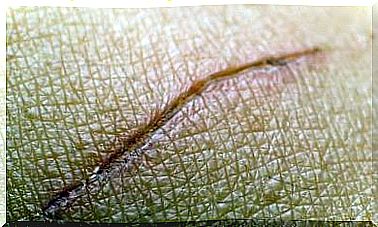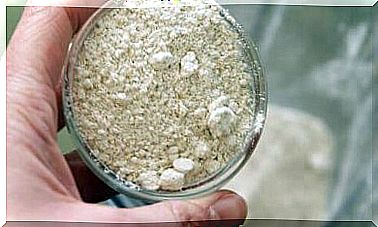8 Cancer Myths You Should Forget
Cancer is a disease that can be devastating and has many causes. But there is also a lot of false information circulating about him, which is passed on from generation to generation. Discover the main myths about cancer here.

But the problem is more serious than it appears. A misconception about cancer can lead to unfounded concerns, and thus complicate prevention and treatment processes. In the rest of this article, we’ll demystify some information about cancer.
1. Cancer myths: cancer is always deadly
Not all types of cancer are fatal. Nowadays, the chances of survival exceed 70% in the face of this disease. It all depends on the early diagnosis and the general state of health of the patient. The type of tumor and the location of the disease are two very important factors.
You have to understand that when we talk about healing we are referring to a long period in which the cancer has not manifested itself. It can be years before a relapse, but it is quite possible that the cancer will be completely eradicated.
2. Cancer myths: sugar consumption makes cancer worse
This is completely false information. While it is true that cancer cells consume more glucose than normal cells, not ingesting more glucose will not eradicate the cancer by causing it to “starve”.
While it is certain that a diet based on high sugar consumption is dangerous, it does not directly give rise to cancer. But it can cause obesity, which is a major risk factor for your health.
Don’t fall for the idea that quitting sugar is a magic recipe to beat cancer. However, be careful what you eat, whether you have cancer or not.
3. Cancer Myths: Artificial Sweeteners Cause Cancer
Science has shown that no artificial sweetener, whether saccharin or any other product, causes cancer in humans. They are certainly not highly recommended, but there is no risk.
Similar to sugar, you will gain weight if you eat too much of it, and that is not good for your health. We recommend that you go for healthier solutions.
4. Cancer myths: cancer is contagious
No, cancer is not a contagious disease that is spread between humans. There is only one case where this can happen: during an organ or tissue transplant. However, the risk is extremely low.
When cancer is caused by a virus, such as the human papillomavirus, or by bacteria, again it is possible for these microorganisms to pass from one human to another, but the development of cancer is not not guaranteed.
5. Cancer Myths: Facing Cancer, It’s All About Attitude
There is no scientific evidence that a person’s attitude improves or worsens their risk of developing cancer. If you have cancer, the mood swings are quite normal.
People with a positive attitude are likely to be more likely to form social relationships that will help them deal with this situation. In addition, good physical activity can help fight the disease. But it stops there.
6. Cancer Myths: Cell Phones Cause Cancer
You have certainly heard your parents tell you that you should not keep your cell phone near you because the waves it emits can cause serious illness.
This is another cancer myth. Cell phones emit low frequency waves that can change our genes. It is indeed worrying. But this effect on our body is not related to the occurrence of cancer. So you don’t have to worry and you can continue to use your smartphone in a reasonable way.
7. Cancer Myths: Cancer is an inherited disease
Cancer is very rarely inherited. This disease is caused by a gene mutation that can be passed from generation to generation, but in very rare cases. In absolute terms, we advise you to carry out regular tests if certain illnesses are recurrent in your family.
Statistics show that if your grandmother suffered from breast cancer, and some hereditary factor is causing it, it will only affect the offspring in 5-10% of cases.
The remaining 90% of risk factors are attributable to mutations that occur due to aging and exposure to environmental factors, such as smoking , pollution and radiation.
8. Cancer Myths: Hair Dyes Increase Your Risk of Getting Cancer
There is no scientific evidence to show that the use of hair dyes increases the risk of developing cancer.
Some studies have shown that hairdressers and barbers who are regularly exposed to large amounts of hair dye and other related chemicals can develop bladder cancer more frequently than the rest of the population.
However, that doesn’t mean you should stop dyeing your hair. Unless you use it several times a month, in which case we recommend that you take it easy.









